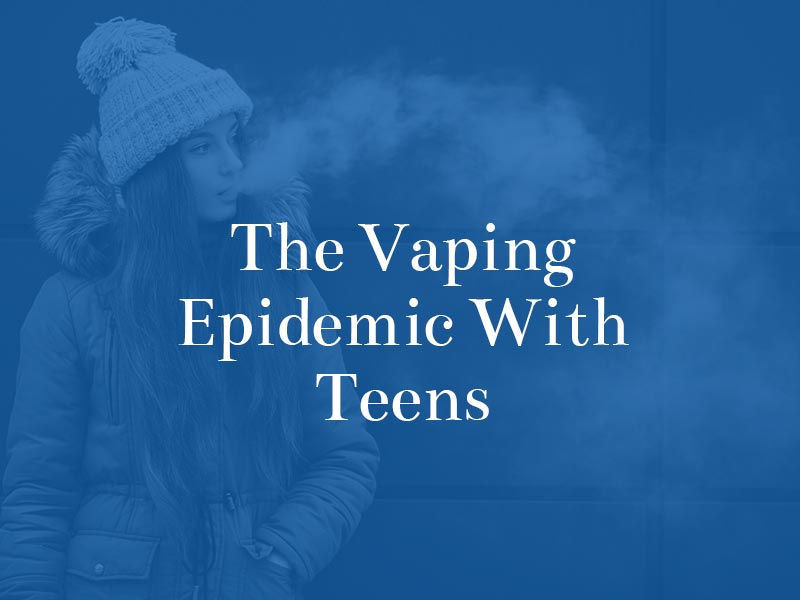A Voice for the Voiceless
The Dunken Law Firm is committed to helping each client find their voice and recover what has been lost.
START MY FREE CONSULTATIONFebruary 22, 2020 | Firm News
The rising use of e-cigarettes among youth has been declared an epidemic by the Centers for Disease Control and Prevention (CDC). JUUL Labs, the creator of the JUUL device, is facing hundreds of lawsuits for injuries, addiction, and the part they have played in fueling their popularity among teens and tweens. New evidence uncovered in a lawsuit filed by the Massachusetts attorney general details how the company illegally marketed to minors by advertising on websites, such as Nick Jr., Seventeen Magazine, Cartoon Network, and others.

In one year, between 2017 and 2018, the number of teens using tobacco products increased by nearly 40 percent. This jump in nicotine use among youth has been the largest single year increase to ever occur. Over five million youth are currently using e-cigarettes, according to the 2019 National Youth Tobacco Survey. The majority reported JUUL as their brand of choice. Youth nicotine use had been steadily declining prior to JUUL’s launch, and the smoking rate among high school students had fallen by 73 percent.
How Vaping Has Become So Popular Among Teens & Tweens
Although JUUL is adamant about never having marketed to underage children, its appeal to youth begins with its design. The device resembles a USB drive, but there are options decal covers that come in colorful designs. They are small, portable, and can be easily charged on a laptop. Hiding one from parents or teachers is not difficult. The device became so popular, that using an e-cigarette turned into the verb “JUULing,” even though there are more brands.
The nicotine juice, called e-juice, that comes in refillable and disposable pods were available in flavors such as mango and mint, both highly favored by youth. However, the company has since stopped selling fruit-flavored pods. The U.S. Food and Drug Administration (FDA) officially halted the sale of mint-flavored JUUL pods in January 2020, as part of their efforts to curb the youth vaping epidemic.
The three most common reasons why students use e-cigarettes, according to the CDC, are:
JUUL’s success among youth has also come under scrutiny in the form of allegations that the company deceptively marketed its product as safe and towards underage and nonsmokers. A physician and professor named Dr. Robert Jackler at Stanford University, who co-founded a group called Stanford Research Into the Impact of Tobacco Advertising (SRITA), managed to keep an archive of a large amount of social media posts that JUUL deleted. The archived ads are filled with young, beautiful models sharing the JUUL devices in a flirtatious manner and in trendy settings, while wearing teen type clothing.
Thirty-nine states are currently investigating JUUL Labs and whether they were deceptive in their claims about the nicotine content in their product, as well as deliberately marketed to youth.
If you or someone you love has been harmed by a JUUL device, you may be entitled to pursue a Juul vaping lawsuit for damages. Companies that knowingly market a dangerous product must be held liable. We offer free case evaluations, call (713) 554-6780 today.